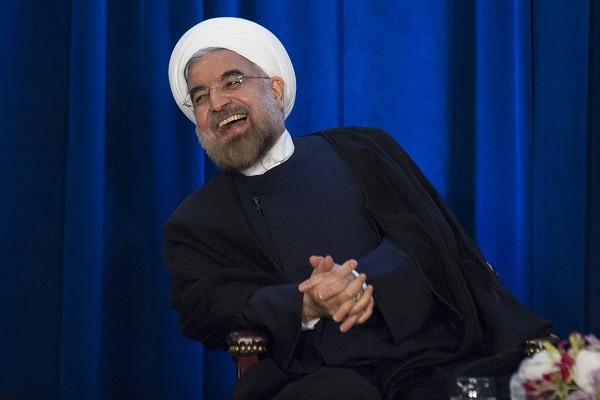US-Iran Relations: Is Hassan Rohani Really a Wolf in Sheep's Clothing?
Sasan Aghlani considers intentions of Iran's new president and explores chance of genuine rapprochement with US.

As we witness the first cautious steps towards a new era in US-Iranian relations, helped by last week's showing at the UN General Assembly from the two countries, those less enthusiastic about rapprochement have questioned the intentions of Iran's new pragmatic president, Hassan Rohani. While most have welcomed the overtures made by Rohani towards the United States both during and after his election campaign, concerns persist over whether he genuinely seeks rapprochement with the west, or has any mandate at all to seek better ties with the US. Is Rohani really, as Benjamin Netanyahu put it, a "wolf in sheep's clothing?"
A distorted view of Iranian politics lies at the heart of this question, and seems to miss a crucial point. While Rohani might be a veteran of the Islamic Republic (he has held key governmental and diplomatic posts since the Revolution, and acted as the Supreme Leader's representative to the Supreme National Security Council), his track record, both as a politician and a diplomat, gives strong indications that preserving Iran's national interests - not needless confrontation, or ideological rhetoric - will be at the core of his presidency. It is at the level of Iran's national interests that the strength of any deal will be measured in Tehran, and Rohani's ability to "sell" a deal at home will be of utmost importance.
Yet ironically, some of the concessions that Rohani is now expected to give in order to build trust are predicated upon the same caricature of diplomacy painted by his detractors in Iran. This view assumes that diplomacy can only succeed if Rohani and his chief nuclear negotiator, Mohammad Javad Zarif, essentially capitulate on the nuclear issue.
This approach has had little success in the past. As head of President Mohammad Khatami's nuclear negotiation team in 2003, Rohani was able to reach an agreement on the temporary suspension of Iran's uranium enrichment programme. The importance of Iran's national interests to striking a deal has habitually been overlooked, and it is simply assumed that Iran gave into pressure following the discovery of an undisclosed enrichment facility in Natanz. Yet upon inspecting Iran's own narrative of the deal, it becomes far clearer why it broke down in 2005.
Iran had understood in 2003 that it would be permitted to continue developing its nuclear infrastructure, and conduct nuclear research, albeit under more rigorous inspections (Iran signed up to the additional protocol in December 2003). Suspension of enrichment was always viewed as a temporary measure, and the decision to resume enrichment in 2005 came about precisely because the EU3 gave indication that it intended for suspension to be indefinite. The decision had little to do with Mahmoud Ahmadinejad becoming president, as is often assumed. As soon as Iran's national-interests (and particularly, the right to enrichment) were viewed as compromised, enrichment was resumed.
Rohani has defended the 2003 deal in these terms, particularly because detractors have crudely ascribed capitulation to Khatami's decision (Rohani highlighted during presidential debates that Isfahan's Uranium Conversion Facility (UCF) was completed and improved during talks and suspension).
So what might Iran's national interests mean today, and how much room will they allow the EU3+3 to manoeuvre at a fresh round of negotiations? It's very likely that the complete suspension of enrichment is a non-starter. If partial suspension is to be an option, significant sanctions relief will need to be offered. If suspension does take place as a confidence building measure, a definitive timescale will need to be attached with a view to reaching a long-term solution to the nuclear dispute.
Here, the gradual establishment of a bilateral framework for dialogue between the US and Iran, capable of linking confidence building in the nuclear area to wider issues of strategic importance to both sides (including Syria, Afghanistan, and the fight against al-Qaeda) could be key.
As long as Iran's national interests are taken seriously in upcoming negotiations, there is no reason to believe that Rohani won't be ready to make a deal.
Sasan Aghlani is an academic who specialises in Iran's defence policy and nuclear programme, and has written extensively on these subjects. He is a key member of the Society for the London Middle East Institute at the University of London's School of Oriental and African Studies.
© Copyright IBTimes 2025. All rights reserved.





















